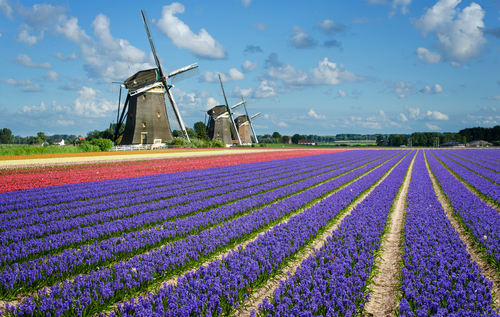Bulb field pesticides found in babies’ nappies: report


People who live nex to bulb fields are exposed to up to ten times the concentrations of pesticides compared to people who live more than 250 metres away, according to current affairs programme Zembla.
The figures come from research commissioned by the infrastructure minister after it transpired there are no specific safety measures in place for the 2.2 million people who live near agricultural fields where pesticides are used.
Some 5.7 million kilos of chemicals were sprayed on Dutch fields in 2017, mostly by bulb growers.
The report, by a group of independent toxicologists, found a year-round increased presence of the chemicals, both in people’s gardens and inside the home.
Although the research did not include the effects of the chemicals on health, the report recommends that crop treatment with chemicals should take place at least ‘a couple of hundred metres from urban areas with people with families’, Utrecht University toxicologist Martin van den Berg told Zembla.
Head of the research group professor Roel Vermeulen confirmed children in particular would be sensitive to the effects of pesticides.
‘The main conclusion is the presence of higher concentrations of pesticides within the 250 metre radius,’ Vermeulen said. ‘Pesticides were found in urine samples of adults and in babies’ nappies, and children in particular are extra sensitive to their effects on health.’
More research is need to establish how damaging the effects are but in the meantime the government should apply the prevention principle, Van den Berg said. ‘If you are not sure if the amount of poison you are exposed to actually leads to damage to health, but you can’t say it doesn’t, you must opt for less exposure,’ he told Zembla.
Three years
It is the first time the degree of exposure to chemicals used in agriculture has been measured in such detail.
The research, which took place over three years, looked at the concentrations of chemicals in urine, dust, air, and gardens. ‘It was unique because we could establish that over a longer period of time and at bigger distances from the fields there were still elevated concentrations of pesticides present,’ Van den Berg said.
The final report will be presented to the relevant ministries at the end of April.
Thank you for donating to DutchNews.nl.
We could not provide the Dutch News service, and keep it free of charge, without the generous support of our readers. Your donations allow us to report on issues you tell us matter, and provide you with a summary of the most important Dutch news each day.
Make a donation